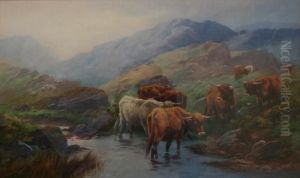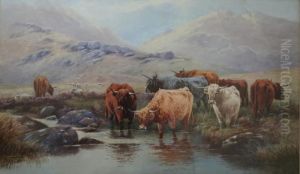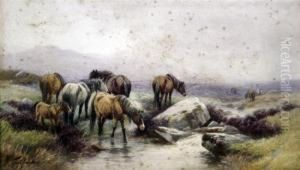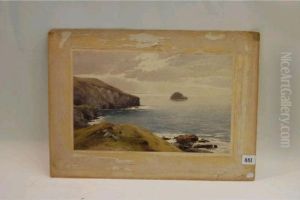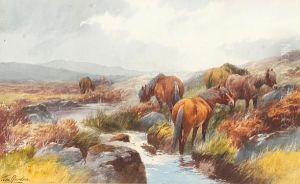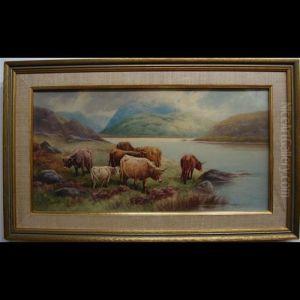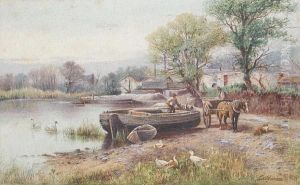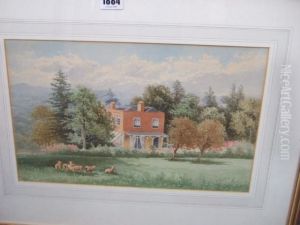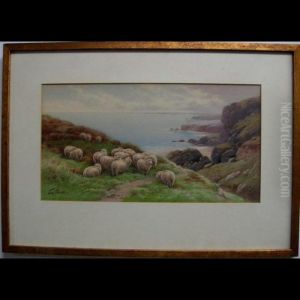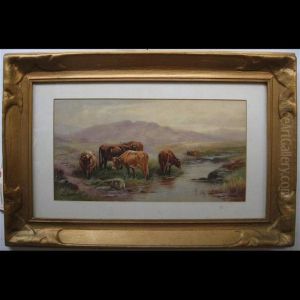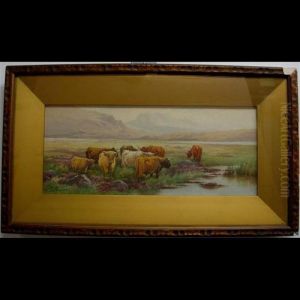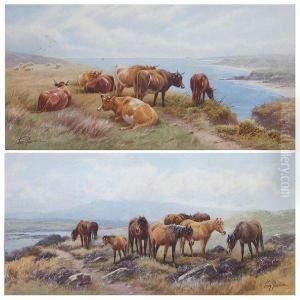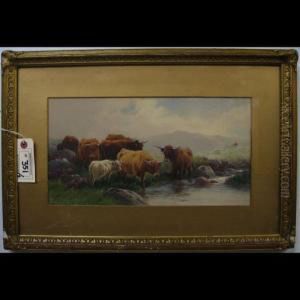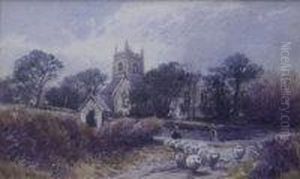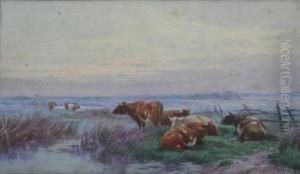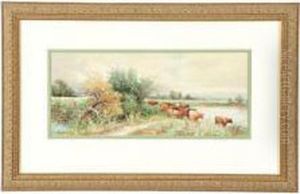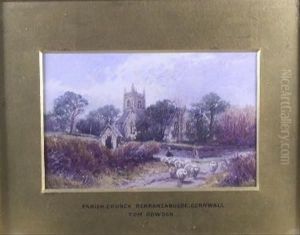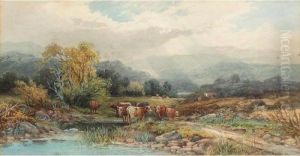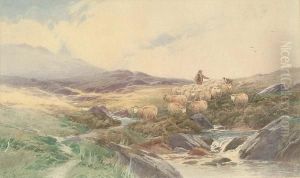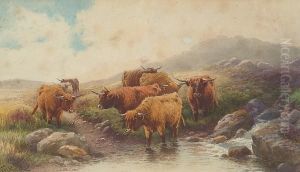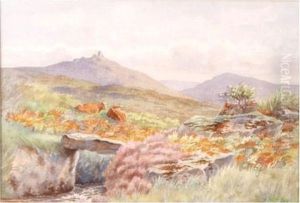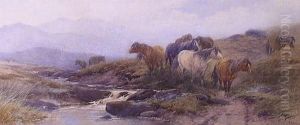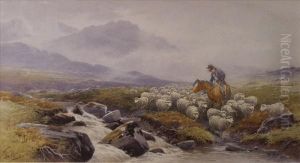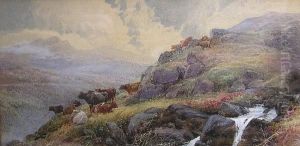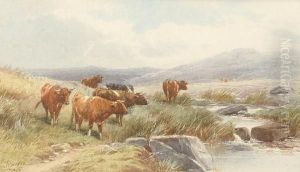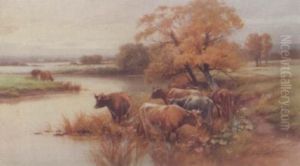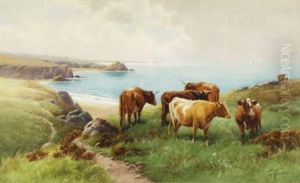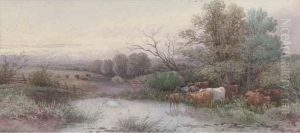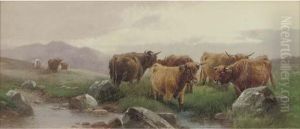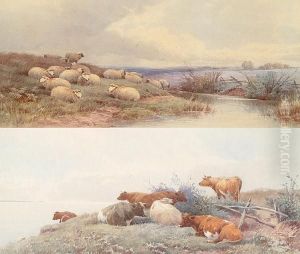Thomas, Tom Rowden Paintings
Thomas 'Tom' Rowden was an English artist known for his landscape and marine paintings. Born on December 19, 1842, in Plymouth, Devon, Rowden showed an early interest in the arts. He was particularly inspired by the scenic beauty of the South West of England, which would later become a recurring theme in his work. Despite the limitations of a Victorian-era education in the arts, Rowden was largely self-taught, developing his style through diligent practice and observation of the natural world.
Rowden's career as an artist gained momentum in the late 19th century. His paintings often depicted the rugged coastlines and pastoral landscapes of Devon and Cornwall. During this period, it was common for artists to be influenced by the Romantic movement, and Rowden's work displayed a keen sense of the sublime found in nature. His ability to capture the changing moods of the sea and sky resonated with audiences who were increasingly interested in the power of the natural landscape.
In addition to landscapes, Rowden also painted marine scenes, capturing the bustling activity of ports and the tranquility of ships at sea. His works were exhibited in various galleries, including the Royal Academy and the Royal West of England Academy, among others. Though not at the forefront of the art movements of his time, Rowden was respected by his peers and appreciated by collectors for his technical skill and his commitment to naturalism.
Throughout his life, Rowden continued to live and work in Devon, where he drew endless inspiration from the environment. He passed away on January 6, 1926, leaving behind a legacy of art that celebrated the English countryside and coast. His works continue to be appreciated for their serene beauty and are held in private collections and regional galleries. Rowden's contribution to English art, particularly within the context of landscape painting, marks him as a noteworthy figure in the transition from Victorian to early 20th-century artistic styles.

